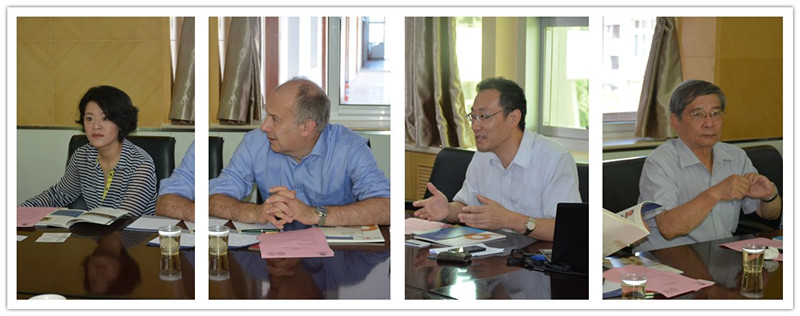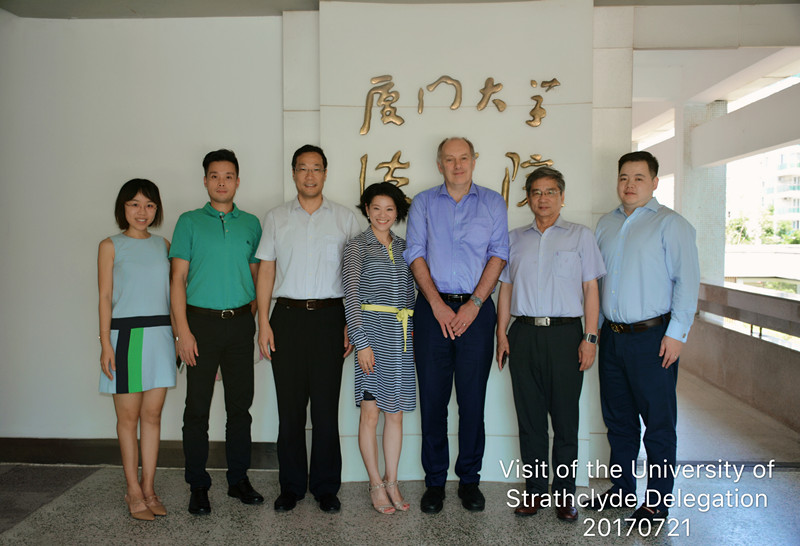

On the morning of July 21, the delegation of Professor Douglas Brodie, Associate Principal and Executive Dean of HaSS, University of Strathclyde; Professor Maozu Lu, Director of Strathclyde China Institute, Professor Lin Fan, Executive Director of Scotland Schools Confucius Institute visited our law school and had a discussion regarding faculty and student exchange, research collaboration and other possibilities of cooperation.
Vice Dean Professor Zhu Yansheng welcomed the guests and gave a brief introduction of the disciplines, faculty and students and the international cooperation of the law school. Up to now, the law school has had close relationships with 32 law schools abroad including 2 law schools in Britain. They are Queen Mary University of London and Southampton University. Vice Dean Professor Zhu Yansheng hoped that the two sides could avail of this opportunity to explore more possibilities of cooperation in various forms in order to benefit our faculties and students.
Associate Principal Professor Douglas Brodie introduced the overview of University of Strathclyde and its law school. He expected to provide the students a better platform for exchange also the faculty for collaboration of research.
After the meeting, Associate Principal Professor Douglas Brodie and Vice Dean Zhu attended the visit of the university for further discussion of collaboration.
The University of Strathclyde is a Scottish public research university located in Glasgow, United Kingdom. Founded in 1796 as the Andersonian Institute, it is Glasgow's second-oldest university, with the university receiving its royal charter in 1964 as the UK's first technological university. It takes its name from the historic Kingdom of Strathclyde.
The University of Strathclyde is Scotland's third-largest university by number of students, with students and staff from over 100 countries. The institution was awarded University of the Year 2012 and Entrepreneurial University of the year 2013 by Times Higher Education.
Entry into many of the courses in the university is competitive and successful entrants in 2015 had an average of 480 UCAS points. It is also one of the 39 old universities in the UK comprising the distinctive second cluster of elite universities after Oxbridge.